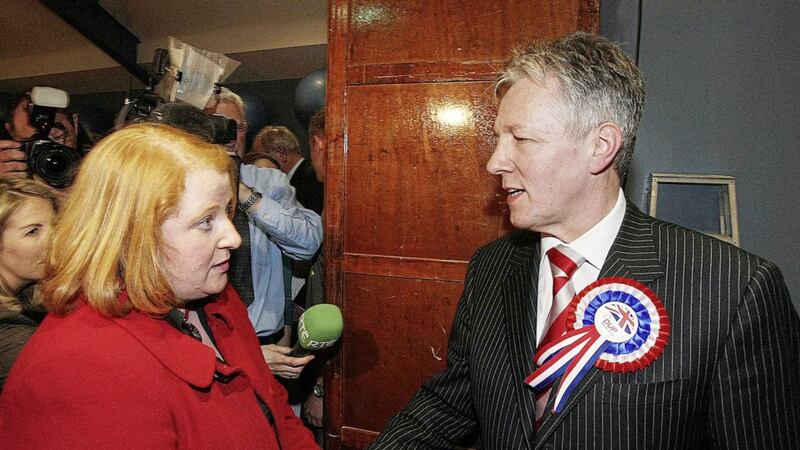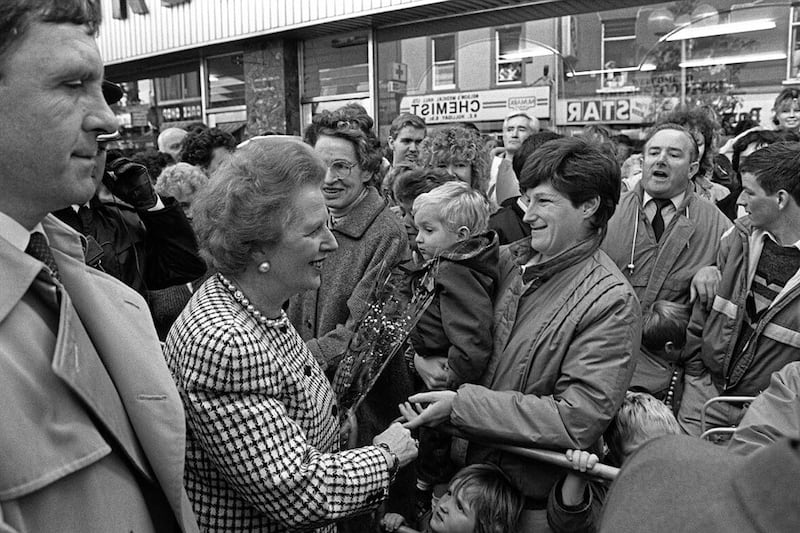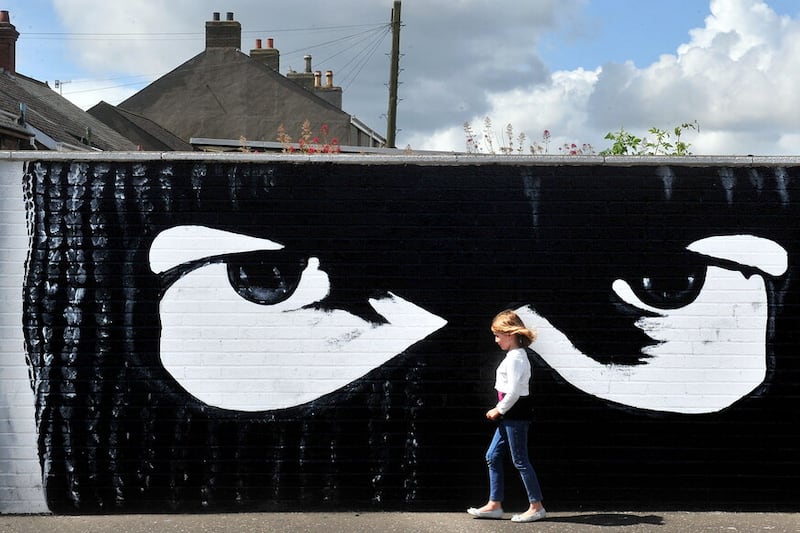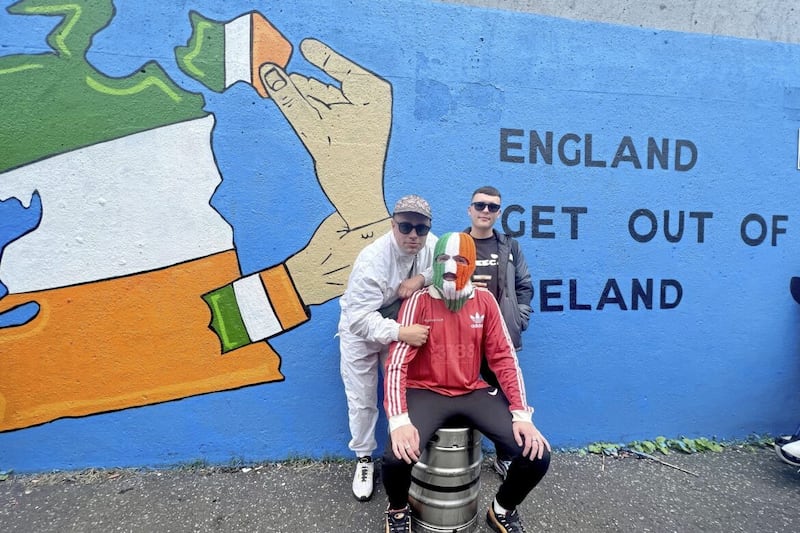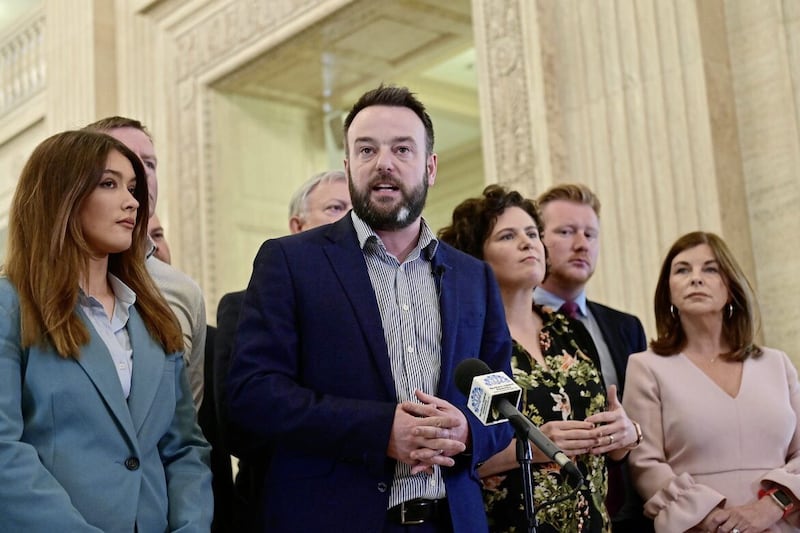Every election in Northern Ireland is a watershed in some shape or form.
Bernadette Devlin, the Tyrone version of Joan of Arc storming to Westminster; John Hume getting elected to Europe. The victory of Bobby Sands from his death bed; Gerry Fitt’s defeat, the right wing Enoch Powell sent packing by Eddie McGrady, Martin McGuinness dethroning Willie McCrea in Mid Ulster, the genial Joe Hendron disrupting Gerry Adams' plans and Naomi Long giving Peter Robinson a bloody nose. All significant in their own right.
And yet, despite these watershed moments, in the grand scheme of all things political, northern elections remain depressingly and stubbornly predictable. The recent poll published by the Irish News showed that voters by a large margin rated Robin Swann, Nichola Mallon and Naomi Long as the best performing ministers in the executive but then don’t reflect this in their voting intentions.
The fact that we face the polls with the two main parties - Sinn Féin and the DUP - both jostling for the delusive moniker of first minister, a post which is equal and legally tied to the post of deputy first minister, is akin to two bald men fighting over a comb.
Just like a learner driver's car, the executive office has parallel controls. Either side can apply the brakes. Unfortunately, it doesn’t mean the car can’t crash. It can.
If, after the elections (and nothing is certain in politics) Sinn Féin take the post of first minister, unionists shouldn’t treat it as the apocalypse nor should republicans acclaim a revolutionary new dawn. It will be another watershed moment.
Paradoxically, the electoral success required for Sinn Féin to make their claim to the joint throne at Stormont could also be the same election which will see fewer nationalists returned to the next assembly.
The media will make much of any changeover but in truth, political change is a natural outworking in the evolution of the Northern Ireland statelet. Unionist hegemony was built on a house of sand and political unionists did little to shore up its foundations.
Of course, any political change of the roles within the executive office will shake the unionist parties to their core. Successive unionist leaders have overplayed the significance and symbolism of the role of first minister to their followers.
One imagines there will be those in Larne and Bangor choking on their cornflakes if there’s role reversal the morning after the elections. But they too will get over it because the wider electorate want issues like the economy, health service and the cost of living addressed now. The anti-protocol supporters and the cheerleaders for Irish unity will both have to take a chill pills whilst realpolitik kicks in.
It wouldn’t be surprising, if Sinn Féin (as suggested once by the late Martin McGuinness) offered to magnanimously abolish the style of ‘deputy’ and create the title of Joint First Ministers. It would give them huge kudos in the USA and elsewhere.
Recent polls also show growing support for the Alliance Party. Much of this is down to the personality of the leader, Naomi Long, who is a polished media performer and politically driven. As a party of the status quo, Alliance often appears as the Ulster Unionists should be - liberally unionist. That said, to unionist hardliners voting for Alliance is analogous to voting for Sinn Féin. Doug Beattie must look with envy at how Alliance soaks up moderate unionist votes.
A breakthrough for Alliance would be another watershed moment, though it wouldn’t necessarily change the habitual cultural clubbing by either tribe.
The last Westminster elections were also watershed moments for the SDLP with the stunning victories for both Colum Eastwood and Claire Hanna but the real test comes in translating those successes by taking new seats in Belfast, Strangford and Fermanagh/South Tyrone without losing existing seats.
Post elections expect a different type of water shed - tears! Of joy or sorrow - you get to decide.

